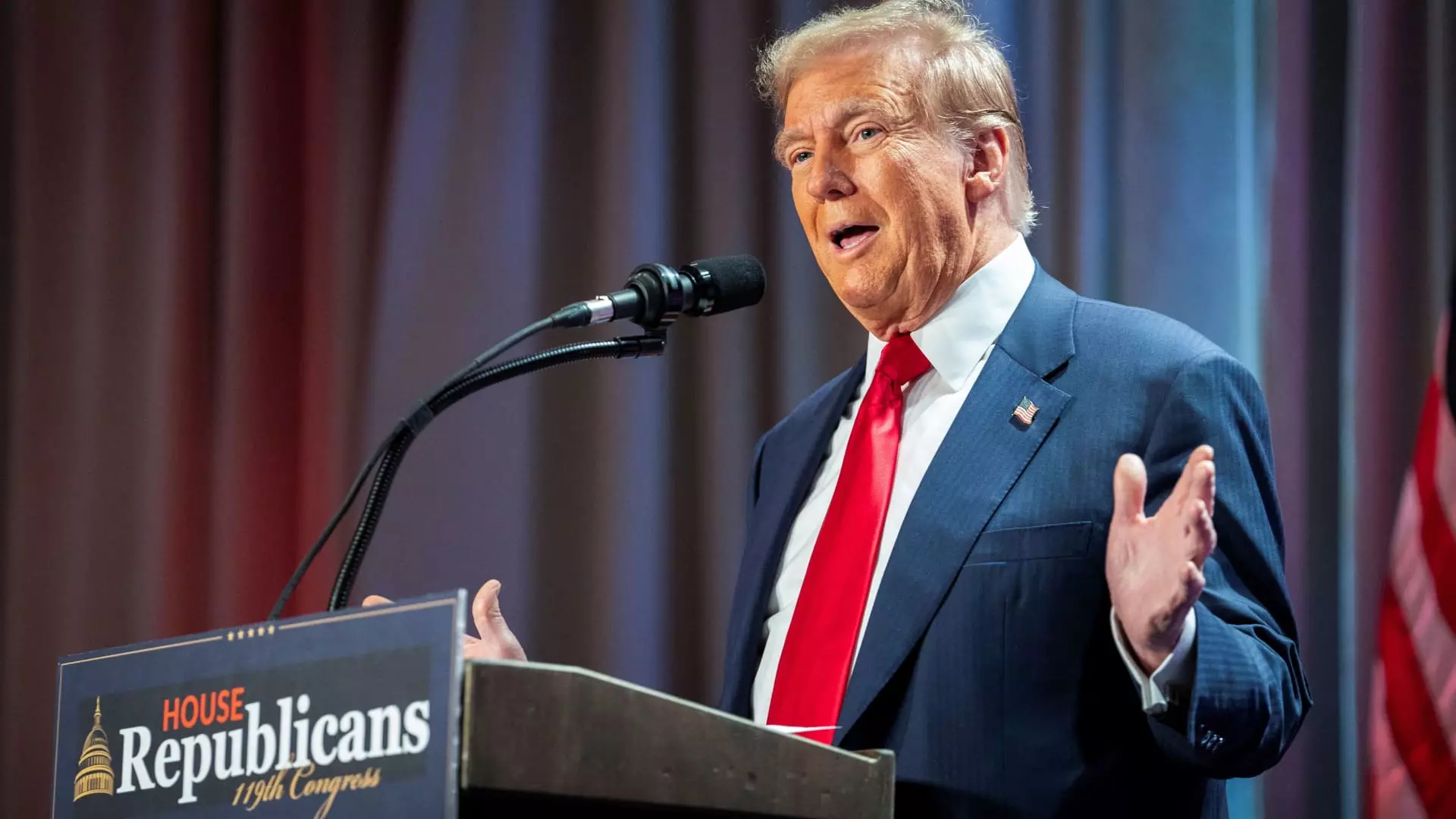The impending appointment of Chris Wright as the Secretary of Energy under President-elect Donald Trump heralds a significant transformation in U.S. energy policy. Wright, a fervent advocate for fossil fuels and the founder of Liberty Energy, possesses a unique profile that underscores a disparate vision for American energy production. With a controversial stance against climate change initiatives and a penchant for unabashed self-promotion, Wright’s leadership could further entrench fossil fuels in a landscape increasingly characterized by renewable energy advocacy.
Chris Wright has carved out a notable career in the oil and gas sector, gaining recognition not only as a business leader but also as an outspoken critic of mainstream climate change narratives. His frequent disparagement of climate activists—whom he has branded as alarmists—reflects a broader rejection of the scientific consensus on climate change risks. Wright’s assertions, such as “there is no climate crisis,” are emblematic of an ideology that prioritizes fossil fuel production over environmental considerations. This ideology is echoed in his assertion that the Democratic agenda mirrors the repressive tactics of Soviet communism. With no prior political experience, Wright’s entry into a critical governmental role raises concerns about the balance between business imperatives and public policy.
One of Wright’s primary objectives aligns seamlessly with Trump’s agenda: increasing domestic oil and gas production. This focus corresponds with Wright’s anticipation of rising electricity demand, likely bolstered by advancements in technology, including artificial intelligence and electric vehicles. However, it is crucial to interrogate the sustainability of such a model based on fossil fuels. While proponents argue that traditional energy sources are necessary for economic growth and poverty alleviation, critics caution against neglecting renewable energy sources that could transition the U.S. toward a more sustainable and equitable energy framework. As the global community grapples with climate change, Wright’s perception of energy evolution could jeopardize collective efforts to embrace greener alternatives.
If confirmed by the Senate, Wright will inherit a multifaceted role that exceeds mere fossil fuel oversight. The Department of Energy not only engages in energy diplomacy and manages the Strategic Petroleum Reserve, but it also oversees cutting-edge technologies, nuclear waste, and national laboratories. The interdependence of renewable initiatives and nuclear power, which enjoys bipartisan popularity yet remains fraught with regulatory hurdles, could present Wright with the challenge of reconciling conventional energy pursuits with a pressing need for modernization in energy policy.
Moreover, the surge in power demand, coupled with the technological revolution, necessitates a re-evaluation of energy transmission and infrastructure development. Wright’s approach will likely prioritize fossil fuels, but neglecting the complementary investment in renewable energy infrastructure risks exacerbating tensions between competing energy ideologies.
Wright’s appointment at the helm of the Department of Energy signifies a potential realignment toward fossil fuels at a time when many countries are pivoting towards cleaner energy solutions. While there may be short-term economic benefits associated with maximizing oil and gas production, the long-term implications for climate stability warrant concern. The dichotomy between fossil fuel dependency and the imperative for environmental stewardship could further polarize an already-fractured national discourse on energy policy.
Furthermore, Wright’s history of engaging in public stunts—such as consuming fracking fluid on camera—poses a significant risk: it trivializes substantial debates about health and safety in energy production. As the nation’s energy leader, his public persona could negatively influence public perception of energy policies and their implications for worker safety and environmental health.
Chris Wright’s prospective leadership of the Department of Energy encapsulates both opportunity and risk. As the U.S. navigates an increasingly complex energy landscape, Wright’s appointment underscores a commitment to fossil fuels potentially at the expense of collaborative climate initiatives. The success of his tenure will ultimately reflect the delicate balance between bolstering energy production and addressing the ever-urgent call for sustainable practices crucial in combating climate change. The implications of this appointment will reverberate beyond the U.S., impacting global discussions about energy futures and environmental responsibilities.

Leave a Reply